
Mallorca (also Majorca) is the largest of the Balearic Islands in Spain, in the Mediterranean.
Luxury villas, and luxury apartments to choose from, Mallorca has a reputation for attracting high net worth individuals and families. In fact, it’s not uncommon to hear of people buying property in Mallorca and then commuting to work in the UK!
Be careful if you plan to commute from Mallorca, you could well be considered resident for Spanish income tax!
If you're buying property in Spain and particularly interested in Mallorca, here’s a summary of what you should know before putting an offer on any property.
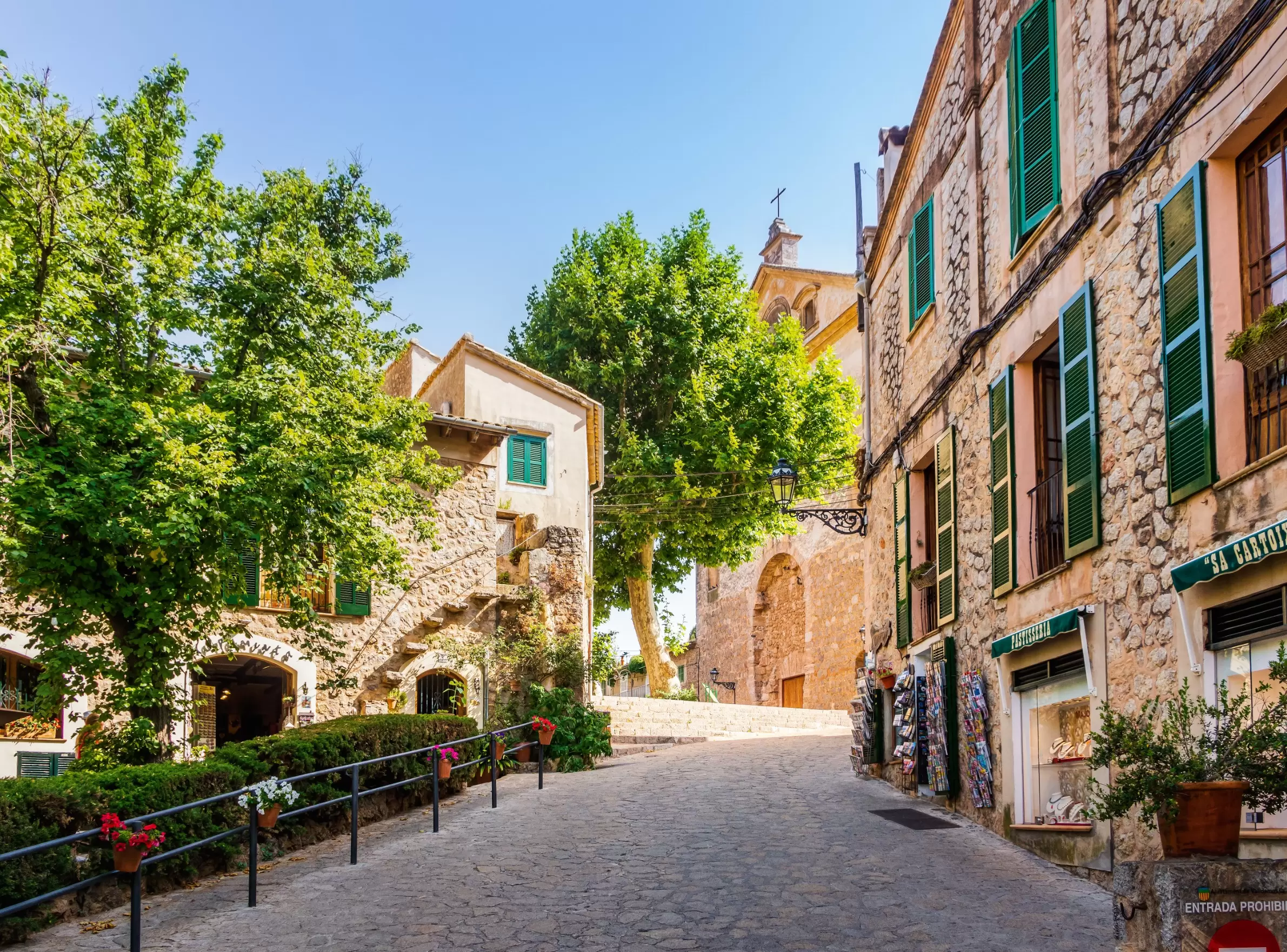
Want to hear what other clients
are saying about us?
1. Mallorca property Market
The Balearic Islands property market has seen significant trends in pricing and foreign buyer activity as per the latest report from the Spanish Land Registries.
Foreign Buyers' Share of Market
International buyers have maintained their interest despite the general slowdown in transaction volumes, according to the Land Registries Association of Spain foreign purchases have remained very high, 35.63% of all property purchases by foreigners in Spain! That’s higher than any other region, which proves the Balearic Islands are the number one destination for international investment and residential purposes.
The market dynamics in the Balearic Islands also show a trend where prices have been increasing, even as other areas have started to stabilise or decrease. This could be due to the islands’ lifestyle, climate and amenities which continue to attract a wealthy international clientele.
Cost of Buying Property in Mallorca
In Q4 2023, the Balearic Islands had one of the highest average property prices in Spain, 3,496 euros per square meter. That’s the highest in the country and shows a strong demand in this area, particularly from foreign buyers.
Madrid and the Basque Country also had high prices but lower than the Balearic Islands, 3,280 euros and 2,912 euros per square meter respectively. The gap is even bigger when compared to the less expensive regions like Extremadura where the average price per square meter is much lower.
In summary, the property market in the Balearic Islands stands out with high property prices and high foreign buyer interest. Despite the general market challenges, these islands have maintained their position as a top tier real estate market in Spain, driven by foreign investment and the location itself.
2. Can foreigners buy property in Mallorca?
Yes they can, foreign buyers have a bigger share of the market in Mallorca than anywhere else in Spain! This has caused some concern among some of the local population.
In late 2022 the regional government in the Balearic Islands (Mallorca, Ibiza and Formentera) launched a study to consider prohibiting anyone who has not been a resident in the area for at least 5 years from buying a property in the area. However, such a ban would not survive legal scrutiny within the context of a fundamental EU principle being free movement of people. As of April 2023 no such ban has been implemented.
Of course, if you’re not an EU Citizen - or have a family member who is an EU Citizen, you will need to overcome the immigration hurdles if you want to spend more than 90 days in any 180 day period in your property in Mallorca. There are several visa options available, the most popular - in terms of volume - being the non-lucrative visa and the relatively new digital nomad visa.
Given the prices of properties in Mallorca, a higher number of golden visas (ability to reside and work in Spain at the holder’s discretion on investment in real estate over €500,000) are issued here, although this visa may be coming to an end, according to recent government announcements of plans to withdraw this option.
So, assuming you’ve found a property you like, you’re confident you will be able to stay in Spain long enough to enjoy the property and you’ve made an offer on it, what steps do you need to take to ensure you buy property in compliance with Spanish law?
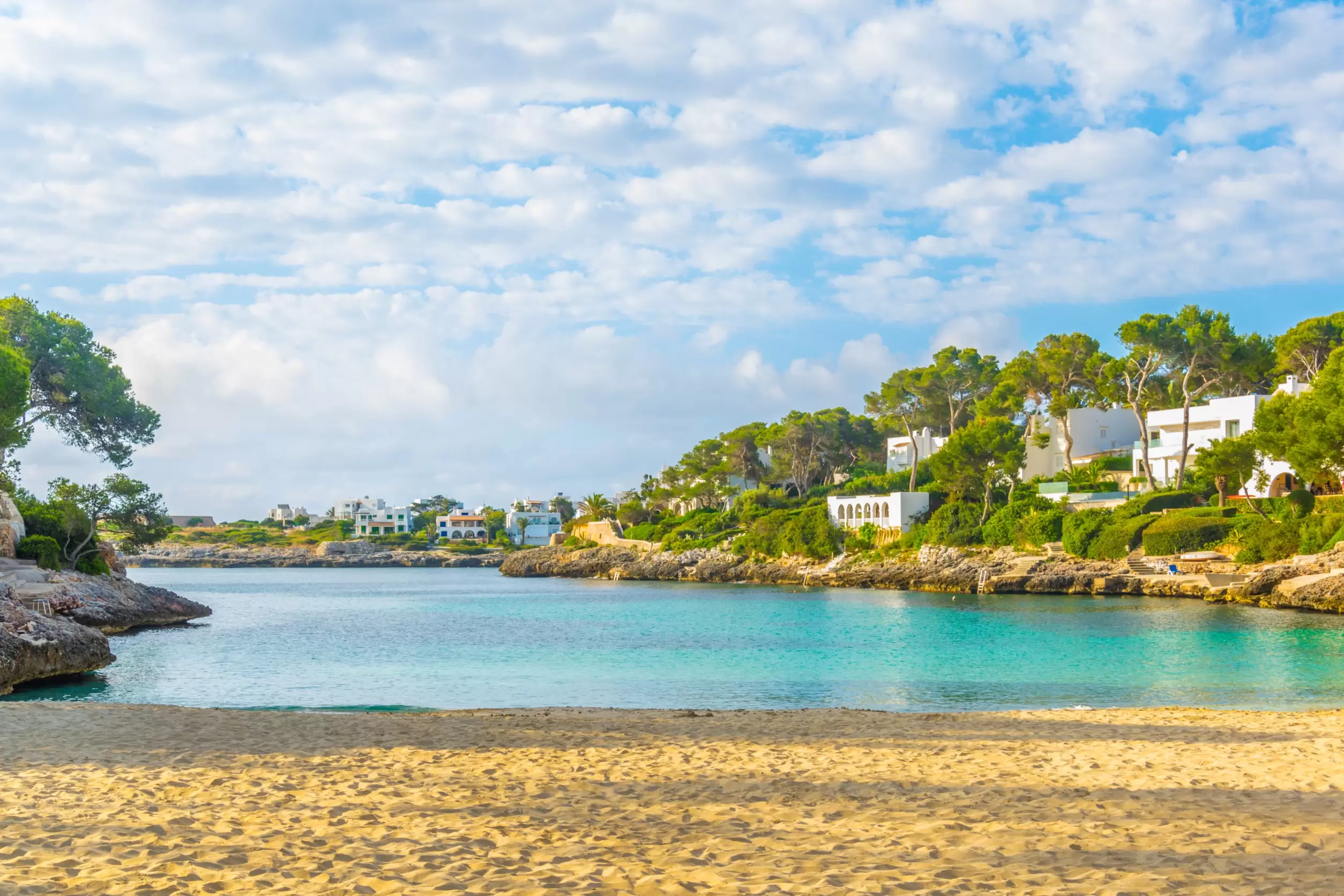
3. Popular Locations in Mallorca
Although only an island, there are still variations in the different areas. Of course, the most beautiful areas of the island command a higher price for property. Below you will find a brief description of the most popular among those relocating to Mallorca:
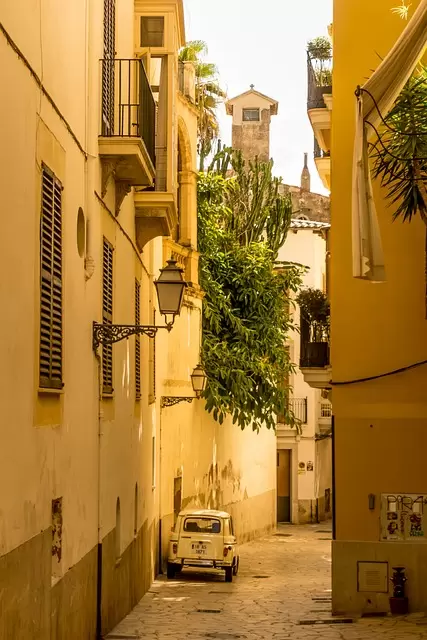
Palma de Mallorca
Palma de MallorcaPalma, the capital of Mallorca, is a lively and cosmopolitan city that manages to combine historic charm with modern living. Its Old Town is a maze of narrow streets, grand palaces and historic landmarks like the beautiful La Seu Cathedral.
Palma has plenty of amenities, high-end boutiques, gourmet restaurants and a bustling nightlife. The waterfront promenade and marina are perfect for strolling and enjoying the Mediterranean views.
It’s also a cultural hub with many art galleries, museums and theatres making it a great location for those looking for an urban lifestyle with a rich cultural background.
The price per square meter in the city centre is around €3,500 to €5,000 and outside the centre €2,500 to €3,500.
Palma: Pros & Cons
- Many cultural and recreational amenities.
- Good transport links, including an international airport.
- Good nightlife and dining.
- Higher cost of living than other areas.
- Traffic congestion in peak season.
- City noise and bustle may not suit everyone.
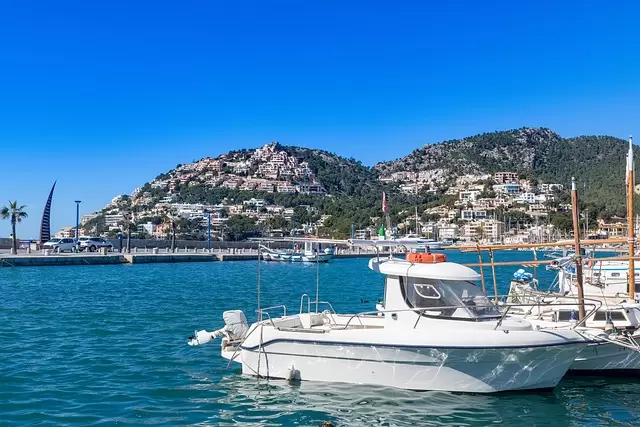
Port Andratx
Port Andratx is a charming fishing village turned luxury hotspot, famous for its high end properties, modern villas and traditional fincas with sea views.
The area has a beautiful harbour with yachts and fishing boats, exclusive waterfront restaurants and chic boutiques. The surrounding mountains and coastline offer plenty of opportunities for outdoor activities like hiking, sailing and diving. Port Andratx attracts a discerning international community, so it’s a great location for those looking for a luxurious, laid back lifestyle with all the amenities of modern living.
Port Andratx: Pros & Cons
- Stunning sea views and luxury properties.
- Good dining and shopping options.
- Expat community and social scene.
- High property prices and cost of living.
- Limited everyday amenities.
- Busy in peak season.
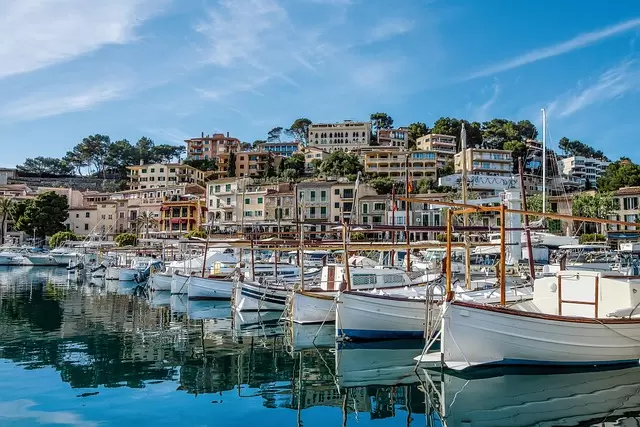
Sóller
Sóller, in a valley in the Tramuntana Mountains, is known for its natural beauty and cultural heritage.The town is famous for its historic tram that connects Sóller to the Port de Sóller, a charming coastal area with sandy beaches and waterfront cafes. The area is full of traditional Mallorcan houses, citrus orchards and olive groves, so a peaceful rural lifestyle. Sóller also has a lively arts scene with galleries, music festivals and artisan markets.
It’s a popular destination for those who want to enjoy a peaceful, nature-filled environment and still have access to cultural and recreational activities.
Sóller: Pros & Cons
- Beautiful surroundings and views.
- Rich cultural heritage and arts scene.
- Peaceful lifestyle with access to mountains and sea.
- Limited public transport.
- Can be isolated in the off-season.
- Higher costs for maintaining historic properties.
Pollensa
Pollensa, including the nearby coastal area of Puerto Pollensa, is a lovely town that combines history, culture and natural beauty.
The town has narrow cobbled streets, historic buildings and the famous Calvary Steps leading to a hilltop chapel with panoramic views.
Puerto Pollensa, with its beautiful Pine Walk promenade, sandy beaches and clear waters, is perfect for families and water sports enthusiasts. The area also has a weekly market with local produce and crafts.
Pollensa attracts locals and expats who want a peaceful, community oriented lifestyle with easy access to outdoor activities and cultural events.
Pollensa: Pros & Cons
- Family-friendly environment with great beaches.
- Historical and cultural sites.
- Active local community and weekly markets.
- Tourist influx can make beaches and streets busy.
- Limited nightlife compared to bigger cities.
- Property prices can be high in popular areas.
4. Cost of Living in Mallorca
Mallorca offers a diverse and attractive lifestyle but the costs vary depending on the area and lifestyle. Below is a brief overview of the cost of living in Mallorca, covering housing, utilities, food, transport, healthcare, education and entertainment.
Housing
Housing in Mallorca can be expensive, especially in popular areas like Palma, Port Andratx and Sóller. Renting a one-bedroom apartment in the city centre of Palma de Mallorca can cost between €900 and €1,200 per month, outside the city centre between €700 and €900. Buying, the average price per square meter in the city centre is around €3,500 to €5,000, outside the centre €2,500 to €3,500.
Utilities
Monthly utility bills (electricity, heating, cooling, water, garbage collection) for an 85m2 apartment average around €150 to €200. Internet services add another €40 to €60 per month
Food and Dining
Groceries for one person can cost around €200 to €300 per month. Eating out varies widely, a meal at a cheap restaurant costs around €12 to €15, a three-course meal for two at a mid-range restaurant around €50 to €70. Basic groceries like milk (€1.10/liter), bread (€1.36) and eggs (€3.99/12) are moderately priced.
Transport
Public transport is affordable and efficient, a monthly pass costs around €40. Gasoline prices are approximately €1.73 per liter. Owning a car involves additional costs like insurance and maintenance which can be high.
Healthcare
Mallorca has good healthcare services. Public healthcare is available but many expats opt for private health insurance which can cost between €50 and €150 per month depending on the coverage.
Education
Public schools are free, private and international schools can cost between €6,000 and €15,000 per year. The quality of education in these institutions is generally high.
Entertainment and Leisure
Mallorca has plenty of entertainment options. Gym memberships cost around €40 to €60 per month, cinema tickets around €8 to €10. Dining out and enjoying the island’s nightlife can vary greatly in cost but are generally more affordable than in major European cities.
Cost of Living Comparison in Spain
| Position | City | % Above National Average | Income (€) | Income Ranking |
|---|---|---|---|---|
| 1 | San Sebastián | 33.44% | €39,023 | 4 |
| 2 | Barcelona | 26.76% | €38,226 | 5 |
| 3 | Madrid | 16.18% | €41,830 | 1 |
| 4 | Palma de Mallorca | 15.73% | €34,522 | 9 |
| 5 | Bilbao | 9.95% | €37,242 | 6 |
| 6 | Granada | 7.89% | €26,373 | 45 |
| 7 | Valencia | 6.25% | €31,208 | 21 |
| 8 | Pamplona | 6.12% | €35,430 | 7 |
| 9 | Santander | 5.66% | €31,545 | 20 |
| 10 | Málaga | 5.04% | €27,084 | 39 |
5. The Buying Process in Mallorca
The process of buying a property in Mallorca is the same as in any other part of Spain. We have a detailed step-by-step guide in our article: buying property in Spain.
In simple terms, once your offer is accepted by the seller, you need to sign a private purchase contract with all the purchase conditions. A deposit is usually required to take the property off the market. If you have hired a lawyer, he/she will be able to do the due diligence before signing the purchase contract.
Once the private contract is signed, the next step is to book an appointment with a Public notary to sign the purchase deeds, then you pay the balance of the purchase monies and the property is then transferred to the buyer.
This is a very simplified overview, it’s worth reviewing the pitfalls of buying property in Spain and always great care must be taken to avoid costly mistakes.
6. What documents do I need when buying a property in Mallorca?
To buy a property in Spain you need a tax identification number, or Spanish NIE number, is required. It’s also recommended to open a bank account in Mallorca where you can transfer the purchase monies before the signing of the public deeds of purchase.
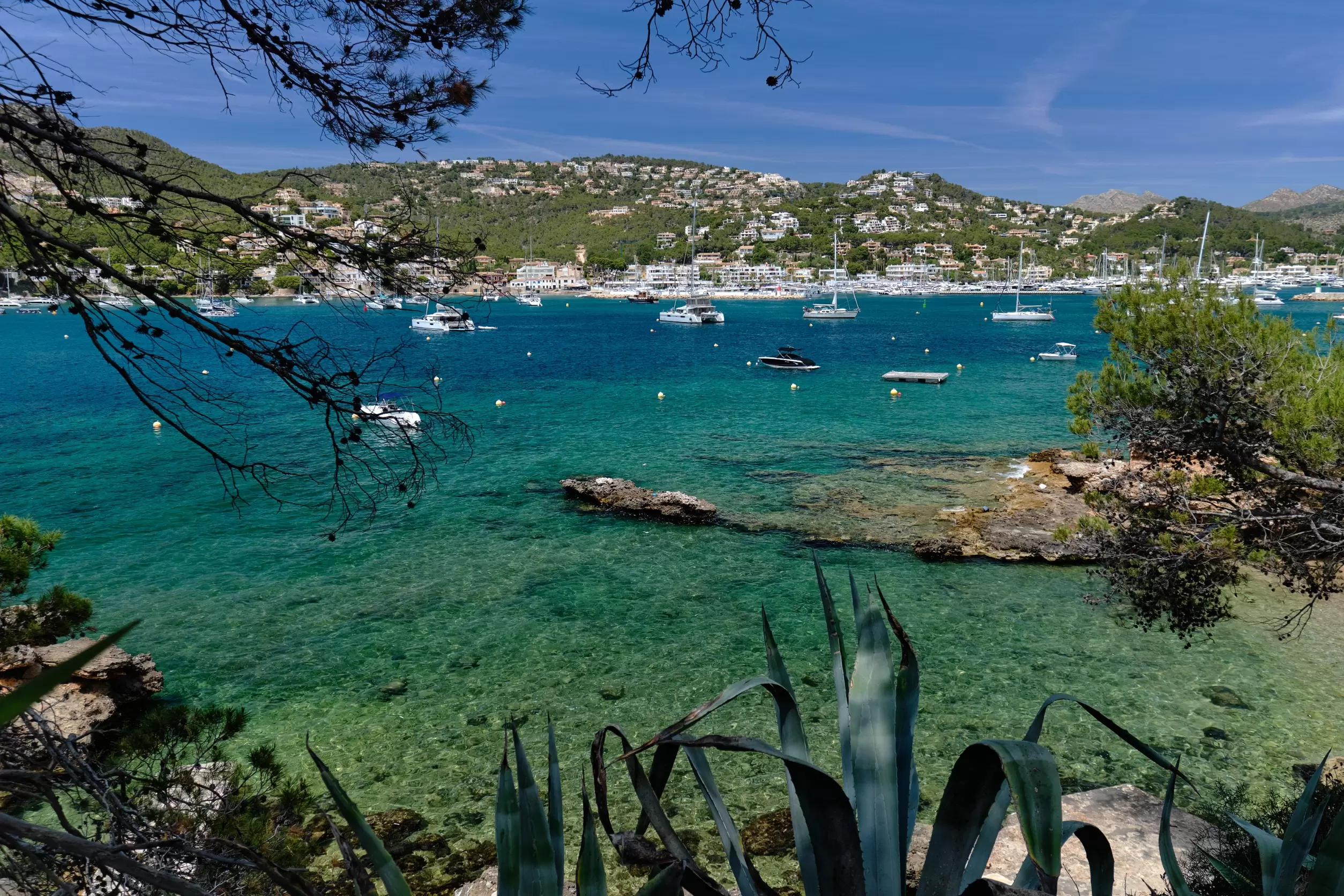
7. How much deposit do I need to buy a house in Mallorca?
Typically the buyer pays a 10% deposit to the seller at the time the pre-purchase or ‘arras’ contract is signed. The ‘arras’ is effectively a ‘contract-to-contract’ and it states how much will be paid for the property and the date the purchase must take place by.Care must be taken and advice sought before signing this contract. For example, a deposit paid under an ‘arras’ contract should not be confused with a request from a real estate agency to pay a reservation fee.
In fact, this fee is usually held by the agency in lieu of payment by the seller of the agency’s fee, and guarantees the buyer nothing in terms of taking the property off the market.
8. Can I rent out my holiday home in Mallorca to tourists?
As a result of Decree Law 03/2022 passed by the Balearics Parliament, a moratorium has been declared to prevent any further touristic licenses being issued, including to Mallorca properties, for the next four years. This means that unless the property you are buying already has a touristic license issued, you will not be able to let the property.
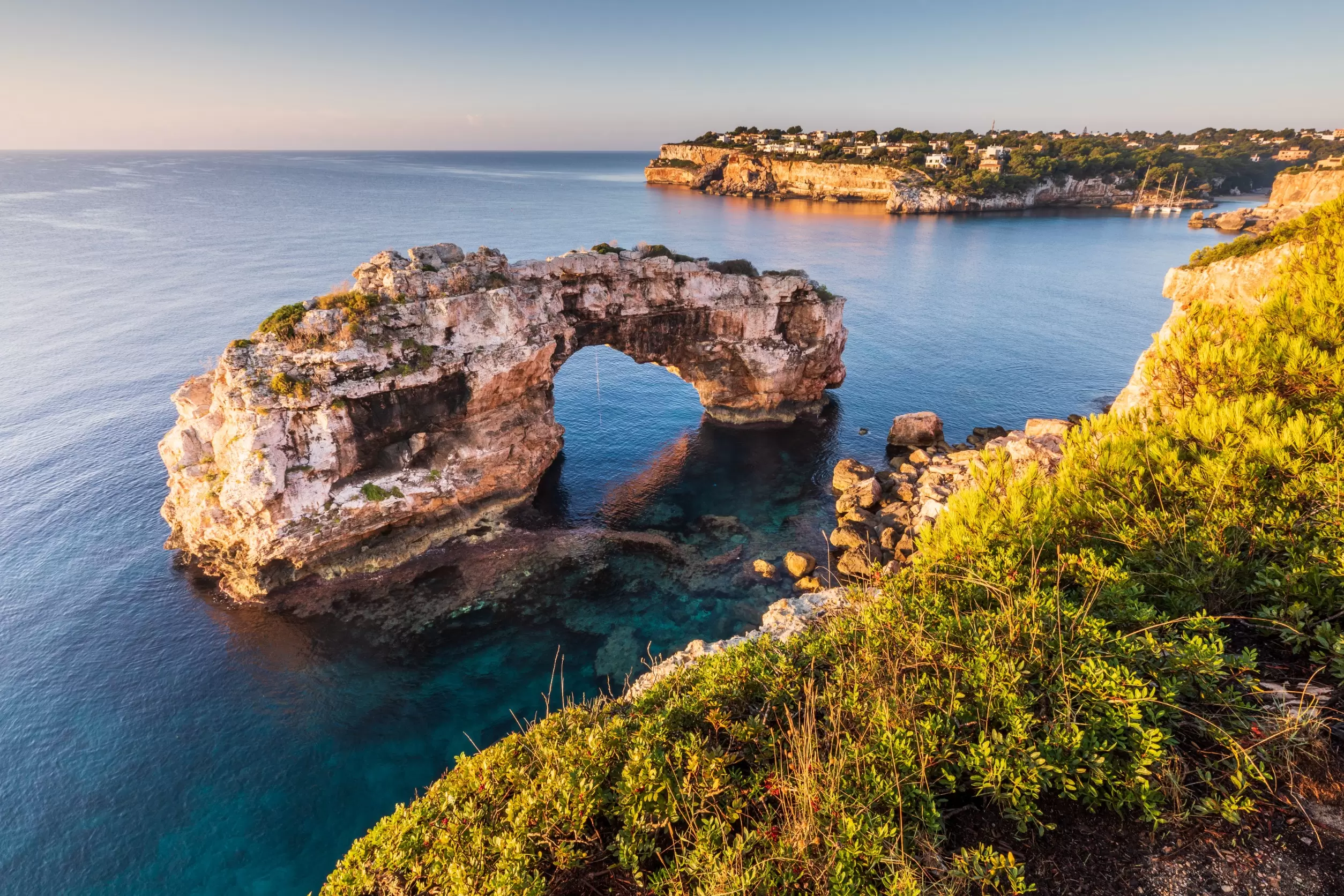
9. If I sign a private purchase contract and change my mind, can I get the deposit back?
If you decide not to go ahead with the purchase after signing the private purchase contract or option contract, please note you will lose the deposit. If it’s the seller who withdraws from the contract, they need to refund double the deposit received from the buyer.
10. Can I appoint a legal representative to sign the deposit contract or the purchase deeds?
Yes, you can. You can appoint a lawyer or legal representative who can sign all the relevant documents on your behalf, your presence on the island is not required. A Power of Attorney is mandatory in these cases.
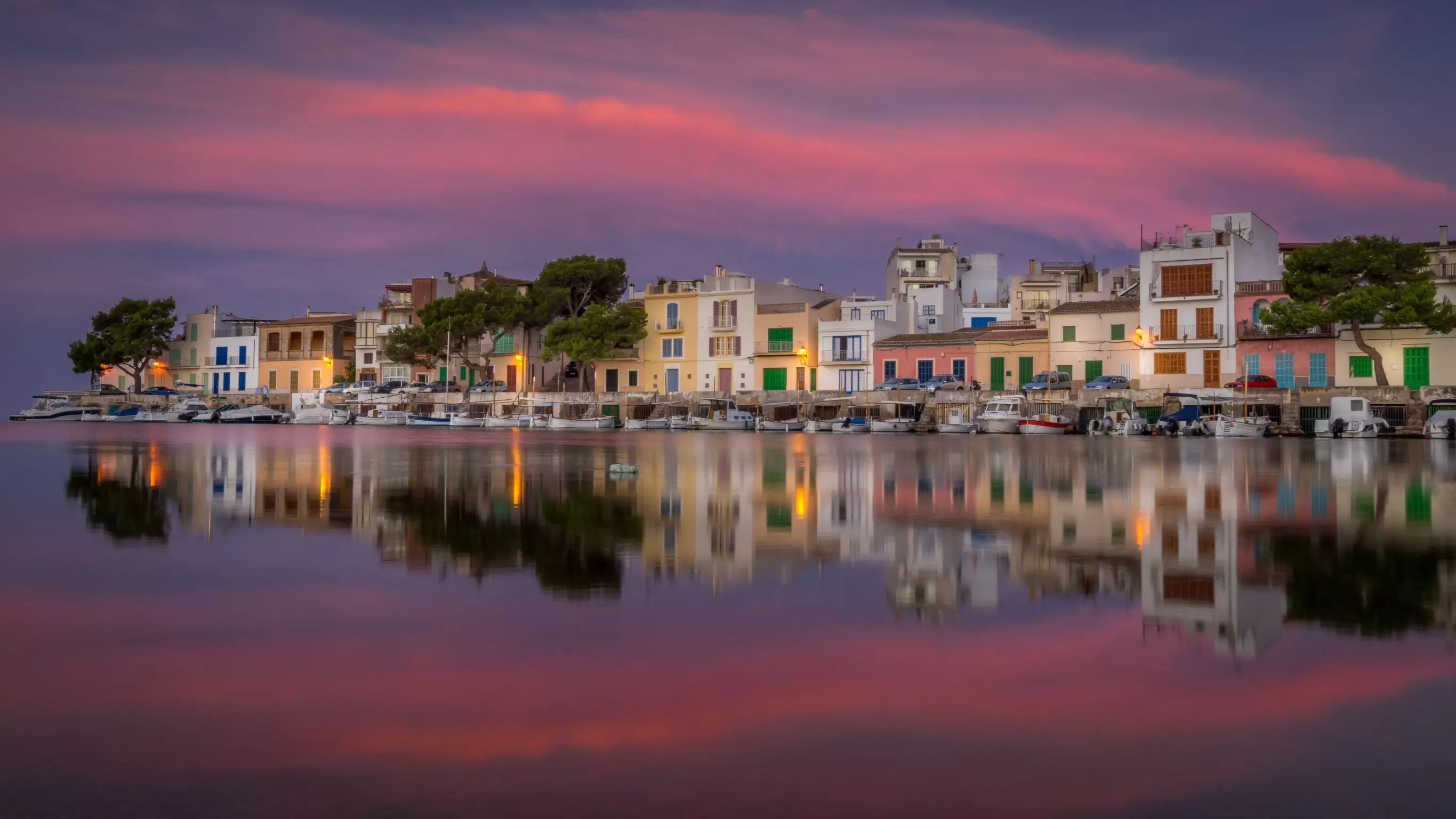
11. What are the purchase costs when buying a property in Mallorca?
On top of the agreed purchase price, there are a few extra costs the buyer must pay when buying a property in Mallorca.
There is an 8-11% purchase tax (stamp duty) which varies depending on the purchase price. If the property is a new brand one bought directly from the developer, then there are two taxes: 10% VAT and 1.5% stamp duty (AJD). See more information by reading property taxes in Mallorca.
As when buying a property elsewhere in Spain, you must also consider the notary fees and property registry fees which again depend on the purchase price.
In total, taxes and professional fees usually add up to around 10-12% of the purchase price, including your legal fees, normally around 1% of the purchase price plus VAT. As with the UK, you will want to be aware of the annual property tax in the area as well as any community charges if living in an urbanisation.
If the seller is a non-resident in Spain, then 3% of the purchase price must be paid directly to the tax authorities by the buyer. Such tax payments should be handled by your solicitor
The seller pays the Capital gains tax. the Spanish “plusvalia”, and the real estate agency fees.
Want to hear what other clients
are saying about us?
12. Top Tips on Buying Property in Mallorca
Sometimes these are relatively minor issues that can be sorted out easily enough - once you are prepared to wade through the local bureaucracy! However, other problems are much more serious and I have seen some unfortunate people being ruined financially by an ill-informed house purchase in Mallorca.
Below I have listed some tips on avoiding some common problems that tend to arise when buying property in Mallorca as well as more important matters to consider, that must be taken care of before proceeding with the exchange.
- DO ensure the house complies with all local planning regulations. It’s not unusual to find in Mallorca houses, outbuildings, pools, porches etc… built without the required municipal licences, which can be a serious issue for the buyer - measures that can be taken by the authorities range from a ban on renovating the house or doing any works on it, to a huge fine or even a demolition order.
- DO request an inventory of furniture and a snagging list. If the house is sold furnished and, in particular, if you are paying extra for this, then our advice is that you request a detailed inventory of all the items that will be sold with the house. Likewise, and since properties are often sold as seen, we strongly recommend that all our clients get the house inspected by a surveyor so that this professional can check that the house is in good condition and/or can draft a snagging list for any defects that should be fixed before the purchase -i.e., humidity stains, broken tiles, a/c not working properly etc.…
- DO request a “Nota simple” or Land Registry certificate. A land registry certificate is a document issued by the land registry where the house is registered. It not only contains a description of the house or the land where it is built on, but also a list of the mortgages and charges attached to it.
- DO inspect the house one more time before the purchase date. This is highly advisable. Although real estate agents often offer this service at no cost to the buyer, since they are mostly paid by sellers, it is always a good idea to confirm with them, directly or through your Spanish solicitor “abogado” that the house is sold in the same condition as when you visited it.
- DO NOT pay any money or deposit in advance before due diligence and before the signing of a deposit/option contract, including all purchase conditions. During many years of practice as a lawyer, I have seen people often advancing money to the vendor “to secure the house” before even knowing its condition or charges that might be attached to it, or before having reached an agreement on the final purchase price. It is also highly advisable to have the deposit transferred into an escrow* account, with most of the Public Notaries in Mallorca providing this service for a small fee.
- DO NOT buy a house for which a mortgage is required before your loan has been approved by your bank. When a mortgage is required to complete a purchase, we strongly recommend signing an option contract subject to mortgage approval, so that the purchaser may recover the deposit or withdraw without penalty in case that for some reason the mortgage application does not go through. We also recommend exploring your financial options with your bank to have all the information that is required before considering buying property in Mallorca.
- DO NOT assume that any real estate agent involved in the conveyance will work for you or will assist you throughout the whole purchase process. Whilst most of the real estate agents in Mallorca are experienced professionals and know the market and the sales/purchase process very well, and they normally do not mind giving the buyer some advice, they are usually instructed by vendors. So, if you are not the vendor, if you do not have an estate agent working for you exclusively, and if it is the first time that you are carrying out a property purchase Mallorca, we strongly recommend that you use your own solicitor on the island.
- And finally, DO NOT sign any document that has not been previously translated to a language that you understand. Note that English is not an official language in Spain, so the vendor is not obliged to translate any contracts or documents produced in Spanish or in Catalan (also known in its Balearic version as Mallorquin) into other languages.
13. Frequently Asked Questions
Is it worth buying property in Mallorca?
Investing in property in Mallorca can be a wise decision. The island's property market is robust, with high demand from foreign buyers, particularly for luxury villas and apartments. Despite high prices, which are among the highest in Spain, the allure of Mallorca’s lifestyle, climate, and amenities continues to attract investors. The rental market is also strong, driven by tourism. However, potential buyers should navigate legal requirements, such as obtaining a Spanish NIE number and understanding local regulations to avoid potential pitfalls.
Can foreigners buy property in Mallorca?
Yes, foreigners can buy property in Mallorca. The Spanish government encourages foreign investment, making the process straightforward. However, due to recent protests by locals about over-tourism and its impact on their quality of life, it's important to consider these sentiments. If you plan to buy a holiday let, legal assistance may be necessary to navigate regulations. Buying property in Spain as a foreigner is simple, but awareness of local issues is crucial.
What are the taxes on buying property in Majorca?
-
Value Added Tax (IVA):
- 10% for residential properties, including up to two garage spaces
- 21% for land bought from commercial companies and commercial properties.
-
Property Transfer Tax (ITP):
- 8% to 11% depending on the property price.
-
Additional Costs:
- Notary fees
- Land registry fees
- Legal fees
Are property prices falling in Mallorca?
Mallorca property prices remain high and continue to grow annually, despite increased inflation and the European energy crisis. The island's appeal and strong demand from foreign buyers contribute to this trend. While prices have not fallen, the market remains attractive for investors due to Mallorca's desirable lifestyle and stable property market.







